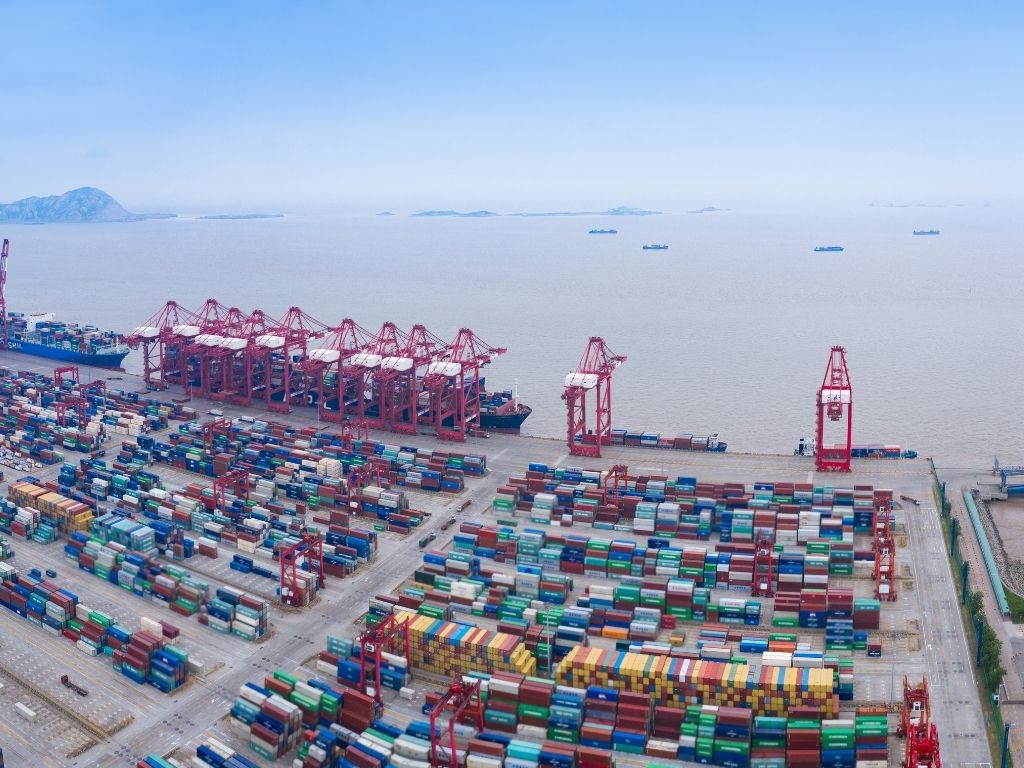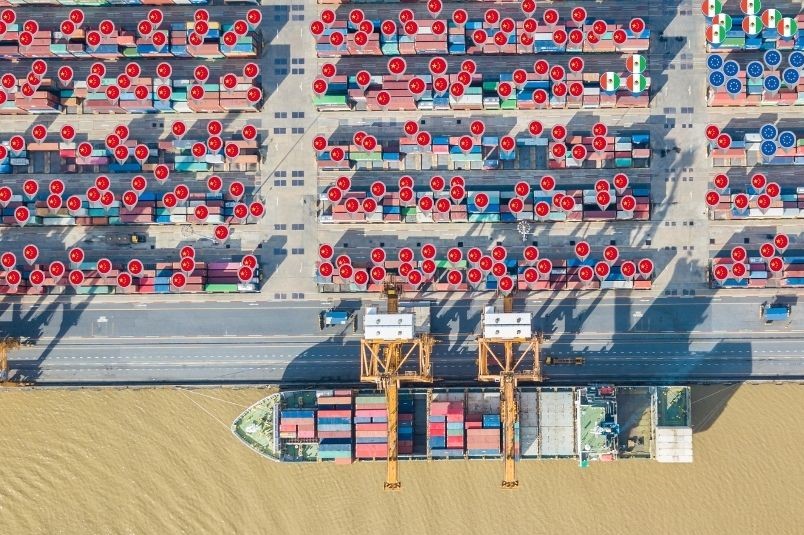So, you want to rely on widgets and gadgets and chemical inputs from halfway around the globe because it’s cheaper and you can dump chemicals down a river, right?
The supply shock of 2021 shows few signs of abating and that is all thanks to our Asia-centric supply chain. Good luck finding a new car. Semiconductors, almost all of them manufactured by a handful of companies in Asia, are on backorder. The 2018 Toyota Camry costs as much as the 2021 model. Weak supply chains, and no domestic suppliers, are to blame for the fact that Subaru and GM are now halting production.
Big business, which caused this mess, is starting to feel the pain.
A Deloitte survey of 96 chief financial officers at North American firms, most of which report more than $1 billion in annual sales, showed that supply chain upheavals and their consequences are taking a noticeable toll on business.
Deloitte’s “CFO Signals” report did a survey in the first half of August. It showed that 44% of CFOs said supply disruptions have increased costs by 5% or more this year. Another 32% said sales are down due to delays or shortages – because the goods are coming from Asian and EU ports. Our goods trade deficit is a record-breaker with both.
Earlier this month, during the markup hearings on the National Defense Authorization Act in the House Armed Services Committee, Rep. Elissa Slotkin (D-MI-8) said Congress needed to do its part to make it easier for companies to reshore. She was speaking primarily to the reshoring of manufactured goods that go into military equipment, nearly half of which is sourced from Europe and Asia, including electronics components from China.
“We went through a whole year of watching what happens when so much of our supply chain is dependent on other countries,” Slotkin said. “We need more resilience. If the past year and a half hasn’t pushed us to care more about what’s made in America, then what will?”
More than two-thirds of CFOs said they expect their supply sources will become more diversified over the next three years. None of them cite reshoring.
About 32% said their companies will reduce their sourcing from China and 39% said sourcing from North America will increase, which CPA expects to mean Mexico and – for textiles – Central America.
Oxford Economics showed in September that half of the 129 businesses they surveyed in a September 1-9 poll reported being affected by supply-chain disruptions. One in eight respondents said they were “severely” disrupted by supply chain woes. At least half of survey respondents said they expect the problems to persist well into 2022.
“Resiliency is often used as code for taking production out of China and sending it to a few countries like Bangladesh, Vietnam, and Mexico to make sure we can overconsume cheap goods, and underproduce just like before,” said Michael Stumo, CEO of CPA. “Those who talk up supply chain resilience make us think they are talking about reshoring when what we are really seeing is just manufacturing moving to other countries instead.”
The U.S. Congress needs a greater sense of urgency at reshoring critical elements of our supply chain. Whether it is the defense equipment that Rep. Slotkin was referring to, or critical medicines and semiconductors, our over-reliance on Asia has revealed the failings of the free trade mantra.
The argument that offshoring is more cost-effective due to tax, labor, and environmental arbitrage has been made by the large multinationals – the Walmarts and the General Electrics – to the detriment of the middle-of-the-supply chain SMEs that manufacture goods for those companies.
The International Trade Commission did a study on this and published it over the summer. ins have crumbled. At best, some companies are opting to source in Mexico instead of here because of the free trade agreement. Others are heading to Central America.
As supply chains shift closer to home, Congress needs to be extra mindful that China is not using Mexico and CAFTA countries as a waystation to get their products into the U.S. duty free. CPA believes that one of the best ways to support supply chain resilience is domestic manufacturing.
 In his testimony to the U.S. China Economic and Security Review Commission on September 8, international trade lawyer Dan Harris said that “Virtually all my clients who have their products manufactured in China would like to have them made somewhere else.”
In his testimony to the U.S. China Economic and Security Review Commission on September 8, international trade lawyer Dan Harris said that “Virtually all my clients who have their products manufactured in China would like to have them made somewhere else.”
You can read his testimony to the Commission here.
One of three things is stopping them, according to Harris. One is the upfront costs of moving. The other is a lack of knowledge on where to go and how to find a good manufacturer elsewhere. The third reason is a mix of cost arbitrage and the fact that no country has comparable port logistics. That’s not due to the genius of the Chinese Communist Party, per se. That is due to the roughly two decades of American multinationals turning China into their factory to make the parts in our laptops, the clothes on our backs, the pots in our kitchen, the furniture in our house, and sheets on our bed.
“Number one above can be ameliorated with subsidies and other incentives,” Harris said. “Number two can be aided with information. And number three will require the United States government to work with manufacturers in the United States and elsewhere to help them develop the necessary manufacturing capabilities” in order to ensure supply chain strength those CFOs surveyed by Deloitte say they are worried about.













